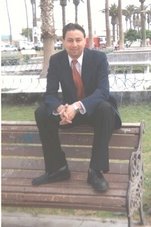Lesson 27: Unit 53
BANKS AND MONEY
David: Today we talk about banks
and money.
Kevin: And we meet this man.
Chris Bailey who works at the bank of Bank of England.
Natalie: Banks and money. What do
you use your bank for?
1.
I used the bank for paying in my salary each month.
2.
I use it to cash my checks basically that’s really all
I use it for.
3.
I never go into a bank. I simply use it as a method of
storing my money and drawing it out.
4.
I use a bank for my checking in my savings accounts.
5.
I personally would be very happy if I never had to
walk into a bank again in my life. I’d much rather keep my money in a tin trunk
and leave my bed.
Kevin: I’ve just opened an account
at my local bank here in London. I’m waiting for a checkbook instead I got a
letter from the bank this morning. Dear Mr. Dutcher. Thank you for opening an account
with us. Unfortunately your checkbook might be delayed. Wonderful.
|
Your checkbook might be delayed.
|
Teller: Can I help you?
Tramp: Yes. I’d like a million
pounds to be transferred from my current account to my deposit account.
Teller: I’m sorry. I’m very busy.
Tramp: Are you going to transfer
the money?
Teller: Of course not. You haven’t
got a million pound!
Tramp: In that case, I’d like to
close my account.
Teller: Fine. No problem.
Goodbye! Did you hear that? He wanted me to transfer a million pounds to his
deposit account!
Second teller: Yes. That’s Mr
Higgins. He’s the bank’s biggest customer.
Teller: Oh, no. Mr Higgins! Come
back!
Natalie: He was richer than he
looked. That customer had two bank accounts.
|
Current account = Cheques.
|
I’d like a million pounds to be transferred.
|
|
Deposit account = Interest.
|
I’d like a cheque-book to be sent…
|
Kevin: I told the bank that I
wanted a cheque book to be sent to me immediately. But the letter says it might
be delayed. I wonder why.
David: Well, your references have
to be chequed.
Kevin: Do they? Oh…
Natalie: Perhaps it’s just a
problem with the machine that prints the cheque books.
Kevin: What sort of problem?
Natalie: Well… er… the machine
might be broken.
Kevin: Do you think so?
Natalie: Yes, that must be the
reason.
|
Your references have to be checked.
|
The machine might be broken.
|
Chris Bailey at the Bank of
England: The Bank of England is Britain’s central bank. Every country has a
central bank. We are the government’s bank and we are the issuers of the money,
of the notes that circulate in Britain. Some countries have independent central
banks where, by constitution or by law, the central bank is set up separately
from the government. But in this country the Bank of England is owned by the
government. They own all our shares; we are a part of the government team. So
we give advice to the Treasury, and to our Chancellor of the Exchequer, and to
the Prime Minister on monetary policy: what would be an appropriate policy, how
fast to let the money supply grow. Once the elected politicians, once our
democratic government have reached policy decisions, based on our advice, we
then carry out those policies.
The printing of bank notes is a
very complex function. We have to be sure that our notes are as secure against
counterfeiting and forgery as they possibly can be, so we want to use the latest
printing techniques that are available. We re-issue the currency notes about
every ten to 15 years in Britain. If we didn’t do that, there’s a risk that
notes could easily be forged because printing technologies change.
We need to be ahead of the counterfeiters.
For example, one of the problems which all central banks face these days is
that of the colour copier machine. Notes might be forged on a colour copier
simply by putting them into the machine and people having a go. We keep ahead
of that, partly because of the very complex paper we use which is not at all
like copier machine paper, and partly by the intense patterns and colour
combinations in the bank notes which make it very difficult for a copying
machine to reproduce them accurately. We have to be ahead of the technology,
which means we re-design the product every ten or 15 years.
The use of the public make
of paper money is rather less today than
it was a 20 or 30 years ago typically a man or woman working in a factory today
will have their salary paid to them by check. Whereas 20 years ago probably
somebody came out and gave them an envelope with bank notes inside it that has
changed people now when they go shopping don’t
pay large amounts of cash across the counter they use a credit card or
perhaps they use a check. So people can economize on banknotes we print as many
banknotes as the public want to use but the relationship between the amount of
banknotes we need to print and the amount of money the public can spend has
changed.
|
Notes could be forged.
|
Notes might be forged on a colour copier.
|
The services that the bank
provides to its staff customers are the same as those provided by a commercial
bank. Cash can be drawn out across a counter. Cash could be drawn out through
the automatic teller machines which commercial banks, of course, had on the
outside of their buildings, foreign exchange can be bought either foreign
exchange notes or traveler’s checks. Bills can be paid through banks. It’s
possible to have your utility bill paid electricity or gas or
telecommunications bills. These can be paid through banks. Taxes can be paid to
food banks. The Bank of England provides all these services to its staff just
as commercial banks provide them to men and women in general in Britain.
Cashier: Good morning.
Client: Good morning. Can I
change these dollars into pounds, please?
Cashier: Certainly. 20, 40, 50.
The exchange rate is 1.6.
Client: All right.
Cashier: That’s 31 pounds 35.
Client: That’s fine.
Cashier: There’s a 2 pound
commission charge for that. How would you like your money?
Client: In fives, please.
Cashier: Certainly. Five, ten,
15, 20, 25… That’s 29.25.
Client: Thank you. I also have
this international money order can I pay it into my current account?
Cashier: Yeah, It’s instead of
nine dollars.
Client: It’s in sterling.
Cashier: Can take you 20 10
cashiers.
Client: Thank you.
There’s been a revolution in
commercial banking in person over the last 20 years data revolution in
commercial banking in many parts of the world, of course, one thing that has
changed in commercial banking is the technology. In addition to those
technological changes. There’s much more competition in banking these days.
Nowadays if you go to a bank and you have a checking account the bank will
probably pay you interest on that checking account, because it wants your
savings. Twenty years ago that would probably not have been the case. So it’s a
much more competitive and user-friendly banking system today.
|
Cash can be drawn out.
|
Foreign exchange can be bought.
|
|
Bills can be paid.
|
Taxes can be paid.
|
|
Can I change these dollars into pounds, please.
|
The exchange rate is 1.6.
|
|
There’s a 2 commission charge for that.
|
How would you like your money?
|
|
In fives, please.
|
|


No hay comentarios:
Publicar un comentario